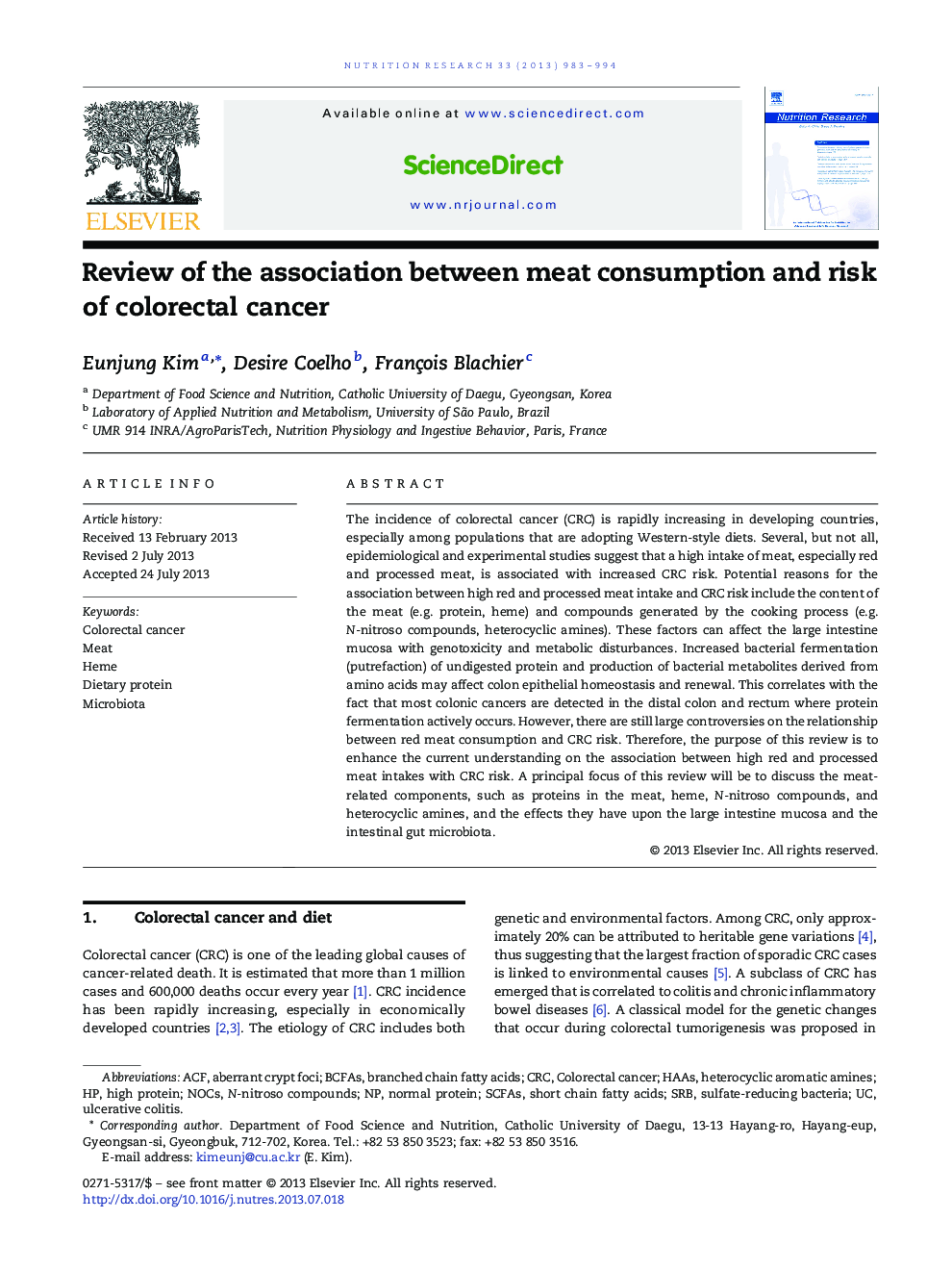| Article ID | Journal | Published Year | Pages | File Type |
|---|---|---|---|---|
| 5904480 | Nutrition Research | 2013 | 12 Pages |
The incidence of colorectal cancer (CRC) is rapidly increasing in developing countries, especially among populations that are adopting Western-style diets. Several, but not all, epidemiological and experimental studies suggest that a high intake of meat, especially red and processed meat, is associated with increased CRC risk. Potential reasons for the association between high red and processed meat intake and CRC risk include the content of the meat (e.g. protein, heme) and compounds generated by the cooking process (e.g. N-nitroso compounds, heterocyclic amines). These factors can affect the large intestine mucosa with genotoxicity and metabolic disturbances. Increased bacterial fermentation (putrefaction) of undigested protein and production of bacterial metabolites derived from amino acids may affect colon epithelial homeostasis and renewal. This correlates with the fact that most colonic cancers are detected in the distal colon and rectum where protein fermentation actively occurs. However, there are still large controversies on the relationship between red meat consumption and CRC risk. Therefore, the purpose of this review is to enhance the current understanding on the association between high red and processed meat intakes with CRC risk. A principal focus of this review will be to discuss the meat-related components, such as proteins in the meat, heme, N-nitroso compounds, and heterocyclic amines, and the effects they have upon the large intestine mucosa and the intestinal gut microbiota.
